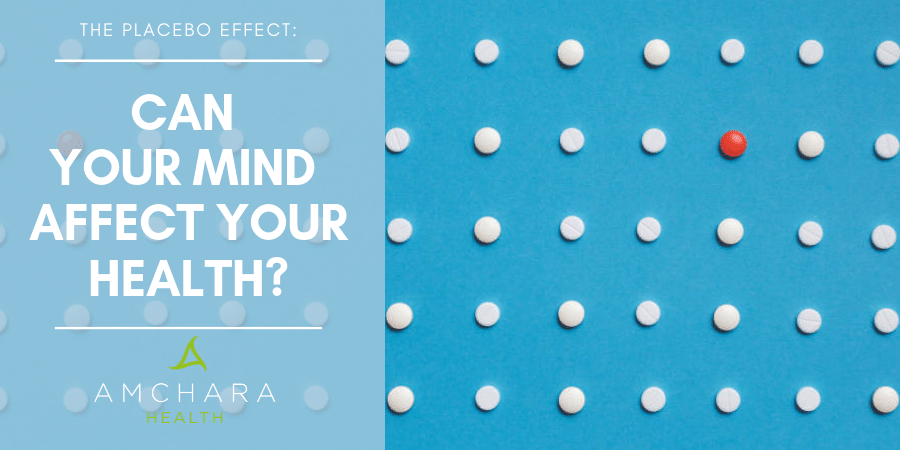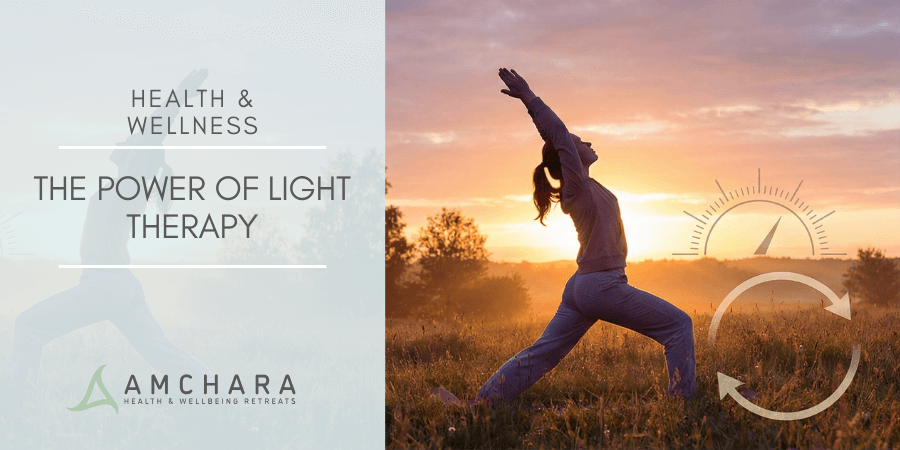Topics Covered in this article:
You may have heard of the placebo effect.
It happens when the mind believes a certain treatment is beneficial, even though the treatment can have no physiological effect on the body, and this belief causes some sort of beneficial effect.
We always take an evidence-based approach – in this article we’ll take a closer look at the placebo effect, and how we may be able to harness the mind to achieve better health.
The Placebo Effect is Real
A placebo effect can involve either a physical or a medical treatment; it’s a significant, recognised phenomenon.
Whenever a clinical trial is designed to test the effectiveness of a drug treatment, a placebo should be used for some of the study volunteers, usually without their knowledge.
This is what’s known as a blind, placebo controlled trial and its purpose is to separate out the effect of simply participating in a trial with the expectation of a positive result from the result of the treatment itself.
If the drug does not produce an effect greater than the placebo effect, it’s considered to be useless.
As far as drug research is concerned, the placebo effect is simply a statistical variance, and any improvement from a placebo is worthless in terms of the effectiveness of treatment.
But if we can feel better from simply expecting a result, isn’t this power worth harnessing?
Why Does the Placebo Effect Happen?
It seems the expectation of a positive result from a treatment brings about changes in the brain’s ‘feel good’ chemicals – dopamine and endorphins – as well as pain-relieving opioids and cannabinoids.
It also appears placebos are capable of activating the immune system and causing the release of hormones (1).
These effects are then remembered by the body and it responds in a similar manner if the placebo is taken in future.
Researchers have measured increased activity in regions of the brain linked to mood, emotional reactions and self awareness after taking a placebo.
In many cases these reactions are similar to those which would be experienced upon taking the actual medicine anticipated.
The effect is likely to be due to a cocktail of bodily responses and is also related to what the body has experienced during past similar treatment events.
It’s thought there is a subconscious learned association with an event and its outcome.
What Does the Placebo Effect Influence?
The placebo effect is particularly pronounced in connection with symptoms controlled by the brain, such as the perception of pain.
Pain is simply an experience our brain is telling us about, so it’s no surprise belief in a treatment can reduce pain sensations.
One study found a 30% reduction in pain when a placebo pill was added to patients’ usual painkilling medication (2).
Just like opiate drugs, placebos don’t simply relieve pain, they also slow breathing and heart rate.
However, the influence of the placebo effect has been found to extend far wider than this.
- Parkinson’s Disease
Parkinson’s patients usually respond well to placebos, largely because placebo therapy can trigger the release of dopamine, which is typically low in Parkinson’s disease (3).
Incredibly, placebo brain surgery has been used with beneficial effects in Parkinson’s. Sufferers supposedly underwent a form of surgery which involved injecting stem cells into their brains.
Some didn’t actually receive the treatment, whereas some did but were not told they had.
You’ve guessed it – those who didn’t have the stem cell treatment but thought they had felt better than those who’d had it without their knowledge, and these effects persisted for at least a year after the initial study (4).
- Cough
It’s estimated a staggering 85% of cough relief is as a result of the placebo effect, with just 15% from the active ingredient (5).
- Depression
One recent review into SSRI antidepressant medications found they had no better effect than a placebo.
When patients took a pill containing no active ingredients, they got better just as often.
It’s often noted patients see relief within hours of taking an antidepressant for the first time, whereas in fact it takes several weeks before results can be expected.
This is despite 70.9 million SSRIs being prescribed in 2018, almost double the amount prescribed ten years ago (6).
Research has also shown the placebo effect is strong for asthma, high blood pressure, gut disorders and even erectile dysfunction.
A Lack of Expectation Also Causes a Placebo Effect
Recent studies have even found it doesn’t matter if the recipients of a placebo are fully aware the treatment they are receiving has absolutely no medical value.
In one experiment, heat was applied to volunteers’ arms along with petroleum jelly which they were told was pain relief gel, and they were asked to rate the pain from the heat.
A number of conditioning trials were run where heat was reduced when the supposed pain relief gel was applied.
Researchers then revealed it was simply petroleum jelly, but in subsequent heat tests the volunteers still experienced pain relief when heat was applied, and this was more pronounced the more times the subjects had experienced the supposed pain relief from the treatment (7).
When the patient is aware they are receiving a placebo it is called an open-label placebo.
In another study, volunteers were asked to take either a migraine drug labelled with the name of the drug or a placebo labelled as such.
The group taking the placebo experienced it to be more than 50% as effective as the real drug in reducing pain after a migraine attack.
The researchers concluded simply taking a pill can have a healing effect.
In other words it can stimulate the brain into thinking it’s being healed (8).
Finally, open-label placebo has been found to help with hay fever (9).
The Placebo Effect and The Doctor
Many doctors admit to regularly prescribing placebos.
This raises ethical questions, but if open-label placebos also work they can be a useful addition to treatment.
However, the doctor can influence the outcome of treatment in other ways.
The type of information given with either an active drug or a placebo appears to influence their effects.
In the case of headache pain, telling the patient the drug is likely to be effective increased the success of the treatment.
The placebo effect also seems to be greater when the treatment is given by a doctor conveying confidence and warmth, or when patients believed they shared the same values and beliefs as the GP (10).
Other Factors Influencing the Placebo Effect
Scientists have found it’s possible to predict which patients experiencing chronic pain will respond best to placebos.
Their psychology and biology primes them to respond to the suggestion that something will make them feel better, and in part this may be down to genetics.
So, in other words some people are hard-wired to experience the placebo effect whereas others aren’t.
One study, which looked at back pain, found those whose pain reduced as a result of taking a placebo had similar brain anatomy and psychological traits.
They were also more emotionally self-aware, sensitive to painful situations and aware of subtle clues in their body relating to their wellbeing.
The colour of a tablet can affect the placebo effect, with blue placebo pills having more effect as sedatives than pink ones.
Some scientists now refer to the placebo effect as the context effect, which takes into account factors such as doctor-patient communication, patient beliefs and past experiences.
The Nocebo Effect
The opposite of the placebo effect is when we expect an adverse reaction from treatment – such as a side effect of a drug – and it happens even if we’re taking a dummy pill.
Researchers have found when patients were told ‘this may hurt’ prior to an injection, their pain scores increased, whereas in migraine drug trials, reported side effects of the placebo corresponded to the side effects which would have been expected from the actual drug.
In one review of statin drug trials, over a quarter of the patients in the placebo group discontinued the drug as a result of perceived side effects, even though the pill they were taking had no physiological effects whatsoever (11).
So if your doctor warns you about the side effects of a medication, you’re more likely to experience them.
In a similar way to the placebo effect, whether the nocebo effect is experienced depends on your level of trust in your healthcare provider as well as past experience of similar treatments, all of which create an expectation in the mind.
All this demonstrates how negative thinking can impact upon our health.
The Placebo Effect and Complementary Medicine
Much complementary medicine is written off by the medical profession as simply being the effect of the placebo effect.
It has been argued that what causes the beneficial effect is not so much the treatment as the patient/practitioner relationship, encompassing attention, listening, support, creating expectations, reducing anxiety, increasing self-awareness and empowerment.
Most complementary therapies require patients to be active in their recovery, be it altering lifestyle factors such as changing sleep patterns or changing food choices.
Many studies are dismissed with the conclusion ‘it’s only the placebo’.
Medical research uses the term ‘dummy pill’ and ‘sham pill’ which are negative terms, but if we are able to use substances which can produce a beneficial effect without the use of drugs with potential side effects, simply by harnessing the power of the mind, is this not a good thing?
Rather than it being perceived as negative, can we not harness the power of the placebo?
Should we deny patients the opportunity to improve their health, even if this comes from themselves, or should we celebrate the incredible capacity within us for self-healing?
Takeaway
It may be self-help strategies such as healthy food choices, engaging in exercise and stress-reduction techniques can support the brain’s reaction in a similar way to that experienced in the placebo effect.
If these are paired with a programme to address nutrient deficiencies and chemical imbalances in the body, the body’s own healing processes can be supported.
It’s well known a positive outlook can help to support good health and interact with the immune system.
Amchara Health Practitioners recognise the importance of the body/mind connection in the healing process.
Your personal goals and motivations, lifestyle and health history will be taken into account, along with the use of functional testing where appropriate.
We’re dedicated to providing you with both insightful information and evidence-based content, all orientated towards the Personalised Health approach.
Did you find this article useful?
Please share your thoughts in the comments.
READ THIS NEXT:




